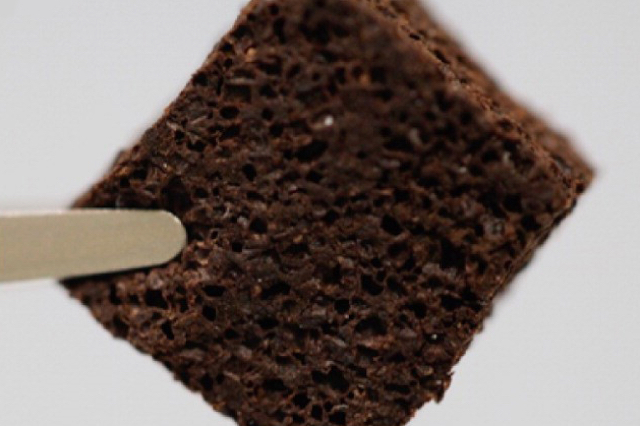
Expanding what we can do with coffee grounds, however, is a team of Italian researchers who have a better idea. They are collecting coffee grounds and converting them into a long-lasting filter that can remove heavy metals from water.
The latest innovation builds off earlier research which suggests coffee is an effective filter that can remove heavy metals from water. The existing coffee filtration technology utilizes spent coffee grounds that are converted to a powder-like substance and added to water. Once in solution, the coffee can bind to and remove heavy metals from water. After the water is purified, the researchers must rely on an extra filtration step to separate the residual coffee powder from the now purified water. To simplify this process, the Italian researchers developed a removable coffee-based filter that would clean the water without directly mixing the coffee into the solution.
The new coffee filter is comprised of a “bioelastomeric foam” that integrates the coffee grounds into the foam matrix. When tested with still water, the foam removed up to 99 percent of the lead and mercury from the solution after 30 hours of treatment. In a more challenging flowing-water test, the foam filter was able to remove up to 67 percent of the lead ions in the aqueous solution. The researchers also found that the ability of the foam to scrub lead and mercury from a solution was not affected by the presence of other metal ions. Best of all — when the filtration was completed, the coffee-infused foam was simply removed and thrown away.
If this process can be scaled up to an industrial level, the foam filter potentially could help offset the millions of tons of coffee waste produced each year. While a small portion of the grounds goes into fertilizer, animal feed or biodiesel production, a significant amount of the waste grounds ends up in landfills. Diverting even some of this landfill stream to clean up contaminated water looks like a win-win situation.



